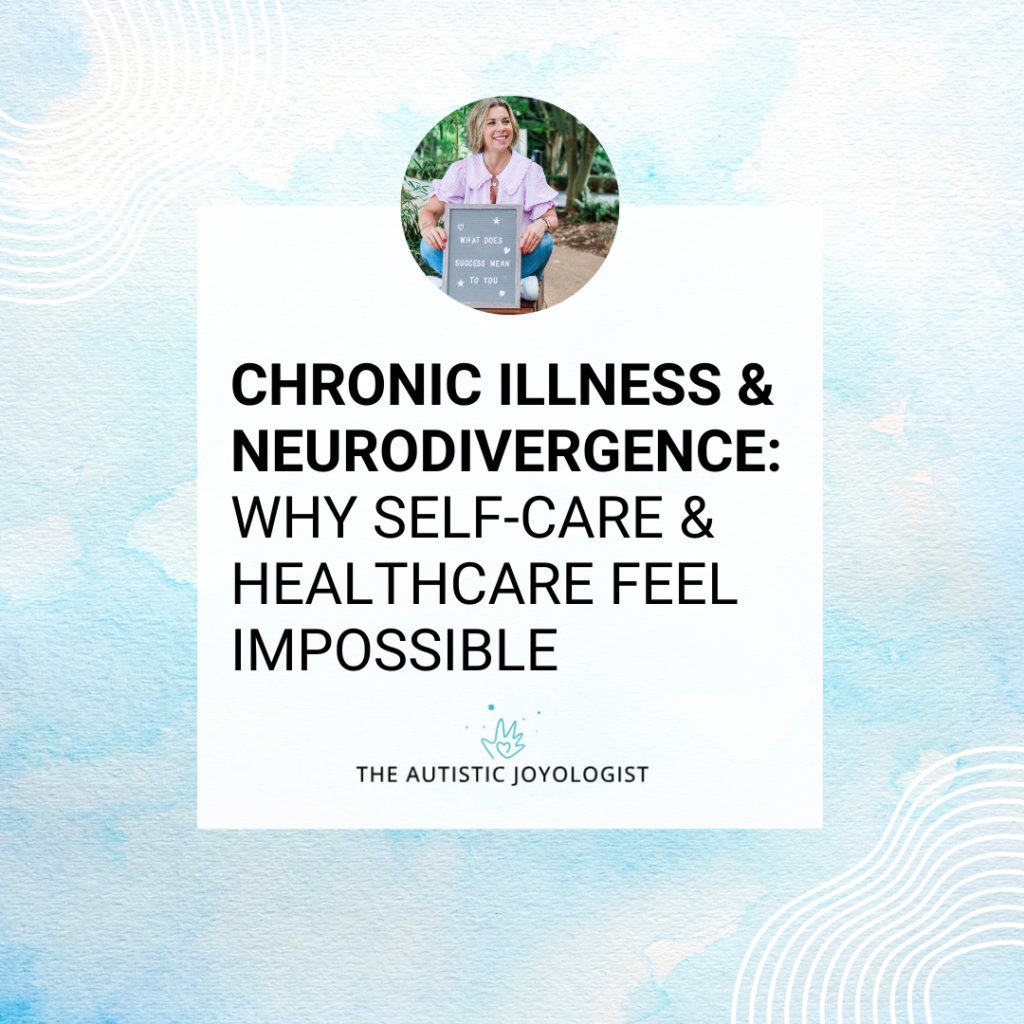Living with chronic illness is exhausting. So is being neurodivergent in a world that isn’t built for you. But when you’re both? The challenges multiply. Every aspect of healthcare and self-care becomes a battle—not just with your body, but with overwhelm, executive dysfunction, and Rejection Sensitive Dysphoria (RSD).
I know this all too well. As someone with endometriosis and chronic back pain, navigating the healthcare system has often felt impossible. Endless referrals, dismissive doctors, and the sheer effort of advocating for myself while juggling pain and fatigue—it’s exhausting. Add neurodivergence into the mix, and even booking an appointment can feel like an insurmountable task.
Many neurodivergent people with chronic illnesses experience the healthcare system as something actively harmful. Filling out forms triggers decision fatigue. The fear of not being believed—or being dismissed as “anxious” or “non-compliant”—can be paralysing. And when medical trauma meets RSD? The shame spiral of “Did I say the wrong thing? Was I too much? Should I even bother next time?” can stop people from seeking help altogether.
Then there’s self-care—the thing we’re supposed to rely on. But mainstream advice doesn’t take neurodivergence into account.
❌ “Just rest!” But how, when you don’t notice burnout until you’re already deep in it?
❌ “Follow a routine!” Except rigid schedules trigger anxiety and executive dysfunction.
❌ “Exercise more!” But pacing energy is almost impossible when your body’s signals are unreliable.
The truth is, traditional approaches to both healthcare and self-care often don’t work for neurodivergent people with chronic illnesses. So what does?
What Real, Sustainable Care Looks Like
💡 Flexible, adaptive self-care
Instead of rigid routines, think in terms of energy mapping—understanding what drains you and what restores you, then adjusting your plans accordingly. Low-demand movement instead of exercise guilt. Self-compassion over productivity shame.
💡 Healthcare that actually works for us
We need medical professionals who are trauma-informed, neurodivergent-friendly, and who believe patients the first time. Healthcare systems should remove barriers—not add to them with inaccessible processes and judgmental attitudes.
💡 Community over isolation
Medical gaslighting and self-doubt thrive in isolation. But having a support system—whether it’s a therapist, an online group, or a trusted friend—makes all the difference. Being believed, validated, and supported changes everything.
At the intersection of chronic illness and neurodivergence, care has to look different. And that starts with recognising that the “standard” systems of support often aren’t built for us. We deserve better.
Does this resonate with you? What have you found that actually helps? Drop a comment—I’d love to hear your experiences.
